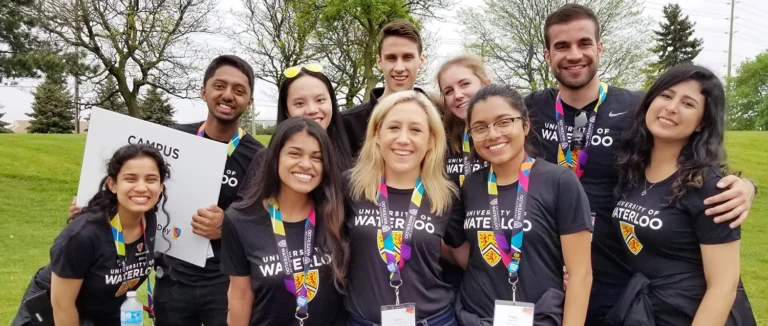7 Countries with Fastest Citizenship by Marriage
Marriage to a native citizen can be a pathway to citizenship in many countries. This process, known as citizenship by marriage, varies in terms of criteria, requirements, and the time it takes to complete. In some places, you might become a citizen in just 2 to 3 years, while in others, it could take up to 10 years.
Depending on the country, the total cost and additional requirements also differ. Some countries only grant residency first, which may lead to citizenship after further years of marriage and residence.
Also, to prevent fraud, immigration officers might investigate marriages, including psychological tests and authenticity checks. Being caught committing marriage fraud can have serious consequences, including jail time.
Key Takeaways
- Citizenship by marriage requirements and timelines vary by country.
- Costs and additional requirements differ depending on the country.
- Marriage authenticity is often thoroughly checked to prevent fraud.
Learning About Citizenship Through Marriage
Citizenship through marriage is a way for foreign nationals to gain citizenship by marrying a citizen of that country. Each country has its own rules and timelines for this process. In some places, it might take about 7 to 10 years to get a passport, while in others, it could take only 2 or 3 years to become a full citizen.
Important Points
- Criteria and Requirements: The criteria and requirements for citizenship by marriage differ from country to country. Some places give residency initially, which can eventually lead to citizenship after a few more years of marriage and living in the country.
- Costs: The cost of the whole process can vary widely. It can range from a few thousand to tens of thousands of dollars depending on the country.
- Verification: To prevent fraud, some countries have strict verification processes. They may conduct thorough research and psychological tests to ensure the marriage is genuine. Fraudulent attempts can lead to severe consequences, including jail time.
Additional Details
In Germany, it’s possible to acquire citizenship fairly quickly through marriage. The initial step involves obtaining a residence permit, which can be renewed during the citizenship process. The total time to become eligible for naturalization typically spans 3 to 4 years. Applicants must demonstrate a stable marriage and integration into German society.
For Canada, the process can be straightforward, although there’s currently a backlog of applications. After securing permanent residency, a spouse can apply for citizenship after living in the country for 3 years. Passing a citizenship test and interview is also essential.
Comparing Global Citizenship Timelines and Costs
Different countries have unique timelines and costs for obtaining citizenship through marriage. Here’s a comparison of several nations:
- Norway
- Time: 7 years
- Cost: Around $4,000 to $5,000
- Notes: Applicants must hold permanent residency for at least 3 years. Marriages abroad count if documented.
- Belgium
- Time: 5 to 6 years
- Cost: Over $5,000
- Notes: Must speak Dutch, German, or French and prove social and economic integration. Dual citizenship is allowed.
- Australia
- Time: 4 to 5 years
- Cost: Roughly $1,000 to $112,000
- Notes: Applicants must prove a genuine and ongoing relationship and may need to meet additional regional rules.
- Netherlands
- Time: 4 to 5 years
- Cost: Over $14,000 to $166,000
- Notes: Requires valid residence permit and meeting integration demands.
- Sweden
- Time: 3 years
- Cost: Around $6,000
- Notes: Must live together for at least 2 years and the relationship has to continue for the process to be eligible.
Citizenship by marriage often requires not just time and money, but also showing proof of a relationship and sometimes understanding the local language and culture. These steps help ensure that the marriage and commitment are genuine.
Country-Specific Citizenship Paths
7. Canada: Resident Status and Citizenship Test
Becoming a Canadian citizen through marriage is a clear but multi-step process. After you receive permanent residency, you need to live in Canada for at least three years before you can apply for citizenship.
A crucial part of the application involves passing the citizenship test and interview. This test includes multiple-choice questions about Canada’s history, geography, political system, symbols, values, rights, and responsibilities.
Key Points:
- Permanent Residency: Must be obtained first.
- Residency Requirement: Live in Canada for three years.
- Citizenship Test: Assess knowledge of Canada.
A growing number of spouse applications means changes might be around the corner. Stay informed and prepared for any updates.
6. Germany: Marriage Stability and Integration
Marriage is one of the quickest paths to gaining German citizenship. First, you need to apply for a residence permit, which lets you live and work in Germany while your citizenship application is processed. This permit is usually valid for 2 years and can be renewed if you meet the necessary requirements.
To apply for naturalization, you have to live in Germany for at least 3 to 4 years with a residence permit. During this period, you must take a German language test and a test covering German culture and society. Even if you’re not yet fluent in German, the government is making efforts to ease this part of the process.
A key part of the application is proving that your marriage is stable and genuine. You also need to show that you are well-integrated into German society. This might involve participating in community activities, learning the language, and showing a good understanding of local customs and norms.
5. Sweden: Co-habitation and Application Criteria
Sweden is known for its diverse and multicultural society, making it welcoming to people from various backgrounds. If you’re married to a Swedish citizen, you can apply for citizenship after 3 years. There’s more to it than just being married, though. You and your spouse need to live together for at least 2 years before applying.
Here’s a quick breakdown:
- Time Required: 3 to 5 years
- Cost: Around $6,000
If your relationship ends while you have a temporary residence permit, your residency might not be extended, and you could even face deportation. The Swedish migration board checks such cases closely. If everything goes smoothly, you’ll be on your way to becoming a Swedish citizen in no time!
4. Netherlands: Integration and Expenses
Obtaining citizenship in the Netherlands through marriage involves several requirements. First, you need to live in the Netherlands with your Dutch spouse for about 4 to 5 years without any interruptions.
During this period, you must have a valid residence permit and meet specific integration demands. These include achieving language proficiency and gaining knowledge about Dutch society.
The overall cost for this process varies, but it can range from $14,000 to $166,000 USD. Costs may depend on factors like legal fees, courses, and other related expenses.
3. Australia: Residency Requirements and Costs
To get citizenship through marriage in Australia, you must meet several requirements. One key requirement is having a genuine and ongoing relationship with your spouse. You need to prove that you are living together, and if you don’t share a house, your residency can be revoked.
You have to stay married in Australia for 4 to 5 years before you can apply for citizenship. The costs for visas and application fees can range from about $1,000 to $112,000. Regional differences in rules may apply, so it’s important to check specific requirements depending on where you live in Australia.
Summary of Key Points:
- Marriage Duration: 4 to 5 years
- Costs: $1,000 to $112,000
- Proof of Living Together: Required
- Regional Variations: Yes, varies by region
Make sure you meet all these criteria to successfully navigate the process.
2. Belgium: Language and Economic Integration
To obtain Belgian citizenship through marriage, you need to live in Belgium for 5 to 6 years. During this period, you must learn and speak one of the national languages: Dutch, German, or French. Additionally, you should show that you are socially and economically integrated.
Key Requirements:
- Residency: 5 to 6 years in Belgium.
- Language: Proficiency in Dutch, German, or French.
- Integration: Prove social and economic involvement.
The total cost for the whole process can be more than $5,000. A significant perk is that Belgium allows dual citizenship. This means you don’t have to give up your original nationality. Be aware, though, that some countries may not permit dual citizenship, which might require you to pick between Belgian nationality and your original one.
1. Norway: Stipulations and Costs
Becoming a Norwegian citizen through marriage requires meeting a series of criteria and can include substantial costs.
First, you must be married for at least 7 years to a Norwegian citizen. You need to have permanent residency in Norway for at least 3 years. Whether you married in Norway or elsewhere, the time you spent together counts. You should be ready to document the duration of your marriage, especially if you lived abroad.
In some cases, completing social studies and Norwegian language courses can shorten this period by a year or two. The costs associated with this process can add up to around $4,000 to $5,000 USD.
It’s also worth noting that if any child is born during this procedure, they automatically receive Norwegian citizenship.
Marriage Authenticity Verification
When you want to get citizenship through marriage, the marriage needs to be real and genuine. Different countries have their own ways to check this. Here’s how it usually works:
- Initial Residency: Many countries start by giving you a residency permit instead of full citizenship. This lets you live in the country, but you must stay married and live together for a few years before you can apply for citizenship.
- Interviews and Research: Some countries may conduct interviews and background checks to ensure your marriage is not a fake marriage for citizenship. They might even check how well you know your spouse and their family.
- Language and Social Requirements: You might need to take courses or pass tests to show you understand the local language and culture. This helps prove you are serious about integrating into the society.
- Legal Consequences: If authorities find out that the marriage is fake, you and your partner could face serious penalties, including jail time and deportation.
Here’s a quick look at how a few countries approach marriage authenticity:
| Country | Residency Duration | Extra Requirements |
| Norway | 3 years | Social studies and Norwegian language courses |
| Belgium | 5-6 years | Speak Dutch, German, or French; Social integration |
| Australia | 4-5 years | Proof of living together; Regional variations |
| Netherlands | 4-5 years | Language proficiency; Knowledge of Dutch Society |
Making sure your marriage is real and fulfills all conditions is important for a smooth citizenship process.
Dangers of Marriage Fraud
Marriage fraud is when two people fake a marriage to get around immigration laws and rules. This act can cause serious trouble for everyone involved. Here are some reasons why:
- Legal Issues: If caught, you could be fined or face jail time. Authorities take marriage fraud seriously and often conduct thorough investigations to catch it.
- Deportation: The foreign national involved in the fraudulent marriage risks deportation. This isn’t just a temporary setback; it can lead to a permanent ban from the country.
- Residency Revoked: Even if not deported, the foreign national can have their residency status canceled. This can disrupt lives as individuals may have to abruptly leave the country.
- Psychological Impact: The stress and anxiety from engaging in fraud can be overwhelming. Constantly fearing being caught can take a toll on mental health.
- Financial Costs: Legal fees and fines can add up quickly. You might be forced to pay large sums of money, adding financial strain to the emotional and legal troubles.
Protect yourself and your future by avoiding marriage fraud. Making marriage decisions based on genuine love and commitment will keep you on the right side of the law.
Conclusion: Ethical Considerations in Citizenship by Marriage
Citizenship through marriage offers a pathway for foreign nationals to integrate into a country. Different countries have unique rules and timelines for these processes, which typically span between 2 and 10 years. To make sure marriages are genuine, many countries have strict protocols. These include granting only temporary residency initially, conducting thorough investigations, and even performing psychological assessments.
Common Requirements and Costs
- Residency Duration: Most countries require you to live in the country with your spouse for a set number of years.
- Language and Cultural Tests: These tests help ensure that the applicant can integrate into society.
- Costs: The entire process can be expensive, often ranging from a few thousand to over $100,000, depending on the country.
Forgeries and Penalties
To deter fraud, many countries have adopted stringent measures:
- Initial Temporary Residency: Countries like Norway and Germany start with temporary residency, which can be revoked if the marriage is found to be fraudulent.
- Investigations: Some nations empower immigration officers to conduct detailed checks, including interviews and home visits.
- Legal Consequences: If caught committing marriage fraud, one could face severe penalties, including imprisonment.
Key Takeaways
- Respect the laws and procedures of the country you’re moving to.
- Ensure your marriage is genuine and documented properly.
- Prepare for both the financial and emotional aspects of the citizenship process.
Following ethical guidelines and respecting the process will make your journey smoother and more rewarding.





